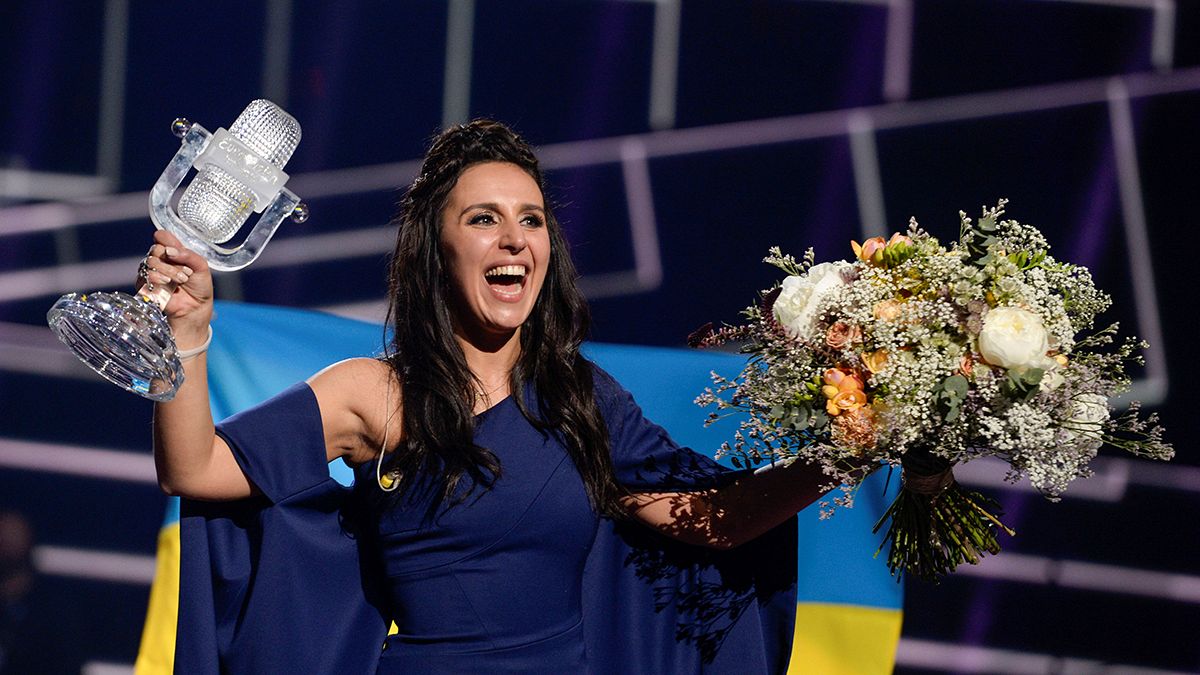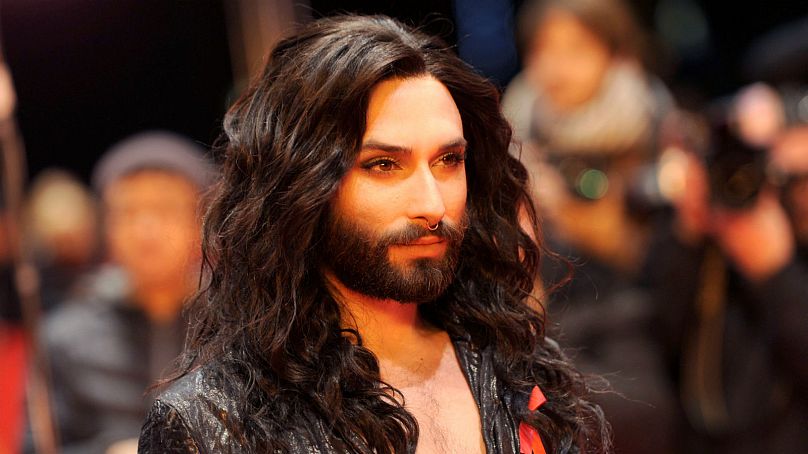Europe's simmering tensions have always threatened to boil over at Eurovision and upset the contest's very raison d'être: to unite the continent.
Politics is the perennial elephant in the room at Eurovision, stalking in the shadows and threatening to upset the idea of a unified Europe.
In 2016, Ukraine’s entry, 1944, was widely interpreted as referring to Joseph Stalin’s deportation of Crimean Tatars — which happened in the same year — and Russia’s more recent annexation of Crimea.
“When strangers are coming, they come to your house, they kill you all and say, we’re not guilty, not guilty,” sang Jamala, the first ever Crimean Tatar to perform at the annual music contest.
The 34-year-old has denied her song was political but it sparked howls of indignation from senior figures in Russia.
Ukraine is not the only country to have been accused of exploiting the competition for political means.
Armenia used the centenary of the massacre of 1.5 million Armenians at the end of the Ottoman Empire — an event recognised as genocide by many European countries but which is disputed by Turkey and Azerbaijan — to enter a controversial song.
“Don’t deny, ever don’t deny, baby don’t deny,” sang its chorus, sparking critics to suggest it was calling for recognition of what Armenia considers a genocide.
Both entries were allowed even though Eurovision’s rules explicitly say songs should not contain political lyrics.
It’s not as if there is an absence of vetting: the European Broadcasting Union (EBU), which runs the song contest, has a special reference group which normally meets in mid-March of each year to consider entries.
The group is made up of a handful of people and they have the responsibility on whether to censor a song.
Its members include the executive supervisor of this year’s show and the two previous years’ producers; a chairman; and three members from European public service broadcasters: Italy, the Netherlands and Slovenia.
While they have access to legal or external expertise if members need it, critics say what is considered political is too subjective.
So should the group be reformed and better reflect how Eurovision has moved eastwards in recent decades to involve former Soviet states?
“I don’t know if they’d go with another format,” said Paul Jordan, an academic expert on the contest, nicknamed Dr Eurovision. “I think the system at the moment is largely working and I don’t think they see a need to change it unless something really important comes up.”
One of the most high-profile songs to be removed from the competition was Georgia’s entry in 2009.
It came amid the backdrop of conflict in the breakaway region of South Ossetia, which is internationally recognised as being in Georgia.
Georgia tried to recapture it in August 2008, prompting Russia to respond with a massive invasion.
The conflict killed several hundred people.
Georgia’s song, called We Don’t Wanna Put In, was thrown out because judges considered that the last two words of the song title spelt out the name of Russia’s current president, Vladimir Putin.
Georgia’s lack of subtlety and the mentioning of individual politicians — in contrast to Armenia and Ukraine — has seemingly proved to be its undoing.
Does Eurovision need to tighten its rules, then?
“I think it is strict enough,” Jordan told Euronews. “It’s working and it would be a great shame if there were songs that were quite barbed and politically-charged.
“You certainly saw that in the 1970s when the likes of Greece and Cyprus would enter certain songs.
“It’s good it’s not becoming a hotbed of political controversy, there’s a fine balance to strike between freedom and creativity.”
But, while few would likely call for more politics in Eurovision, there is a whiff of hypocrisy in any censorship.
That’s because some argue the very mission of the contest has always been political in nature.
Phil Jackson, an expert on Eurovision from Edge Hill University in Lancashire, England, said when the contest was established in the aftermath of World War II its aim was to unite Europe.
More lately, the victory of bearded drag queen Conchita Wurst in 2014 has helped bring tolerance to the forefront, he added, even if the Austrian’s win prompted accusations of homophobia in some countries.
“Eurovision is cosmopolitanism by stealth,” he told Euronews. “EBU’s output has to satisfy the cosmopolitan, pacifist ideal.
“And it’s set against a backdrop of countries where there isn’t that cultural, social or political agreement it then becomes more problematic.
“It’s not Disneyfication of the world but is it a staged Europe? Are we seeing Europe in denial?”
An EBU spokesman said: "The core values of the Eurovision Song Contest are to celebrate broadcasters from different nations coming together through music, and supporting quality public service broadcasting. These have remained the same since the contest began in 1956.
The rules of the contest require that no lyrics, speeches or gestures of a political or similar nature shall be permitted, and no messages promoting any organisation, institution or political cause shall be allowed.
The reference group has measures in place that ensure these rules are upheld, and that the contest remains a non-political event, including a review of each of the delegations’ songs before the contest.
“The EBU understands that there are many different ways elements of songs can be interpreted, however the reference group aims to review these decisions with an objective eye in order to make informed decisions.”

